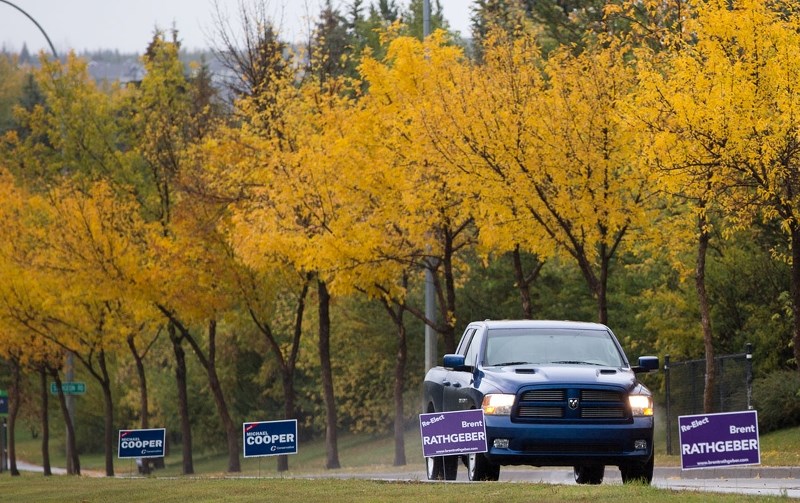As lawn signs clash with the changing leaves and rally cries rival winter winds, residents of St. Albert find themselves in a unique position.
Among the traditional blue, red, orange and greens of federal elections past, a new colour is vying for attention.
Last week, incumbent Brent Rathgeber launched his campaign dubbed the “purple revolution.”
During the event he urged supporters not to elect another partisan mouthpiece, but someone who would study the issues, listen to debate, consult constituents and cast an informed vote that is free of any whipping.
But according to one expert it’s not that simple, and neither is St. Albertans’ choice on Oct. 19. Between a centralized power and a parliamentary system geared toward party politics it could be a gamble either way.
“The system that we have really makes it difficult for Independents to have a significant role to play in the Parliament,” said Chaldeans Mensah, associate professor of political studies at MacEwan University.
While the Rathgebers of the world are useful in standing up to the centralized power of the Prime Minister’s Office and advocating for the role of an MP as a delegate, Mensah said Independents often have no clout in a system designed for party politics.
Other than private members bills, Independents rarely get the opportunity to voice their opinions outright during Question Period.
Mensah indicated that an Independent could have a more important role in a hung Parliament, especially if he or she were to align themselves with another political party or a coalition to shift the power dynamics, but Rathgeber told media and supporters that he did not see himself working with any of the current leaders.
He did mention that he would be willing to work with colleagues within other caucuses however.
But the flip side is not so simple either.
Mensah said the flip side is it remains very difficult for individual MPs – regardless of their political affiliation – to have a major impact in Parliament because party discipline limits their ability in shaping policy or bringing the concerns of constituents before Parliament.
“The typical Canadian MP has to vote on their conscience as a trustee, on the basis of their constituents as a delegate, or as is increasingly the case, those two forms of representation are overtaken by party discipline. Effectively the voices of constituents are often downplayed in favour of the party’s program,” said Mensah.
NDP candidate Darlene Malayko said that while an Independent can vote with their conscience all the time they are unlikely to ever make a difference.
She also indicated that while she may have to vote along party lines on occasion, especially when it comes to key platforms issues like Senate reform, she would have the opportunity to reflect her constituents’ views on other matters.
Conservative Michael Cooper also said there was plenty of opportunity to fight for the constituency during caucus meetings, but that voting in Parliament was not a matter of taking public opinion polls.
“Being an MP isn’t just a matter of taking public opinion polls and then based upon the results voting a certain way. I’m running in this election as a Conservative; I’m running as part of Prime Minister Harper’s team. People understand when they vote for me that I am supportive in general of the Conservative program for Canada,” said Cooper.




